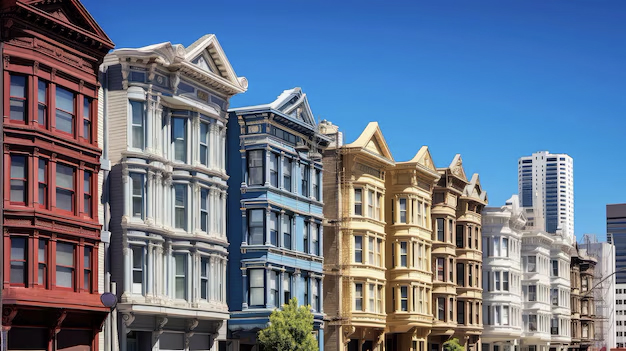Which Law Impacts You? SB 326 vs. Section 604 for San Francisco Buildings

Table of Contents
Navigating California’s balcony inspection laws can feel overwhelming, especially with multiple laws like SB 326 and Section 604 in play. If you own or manage property in San Francisco, understanding the differences between these laws is crucial to staying compliant and ensuring tenant safety. In this blog, we’ll break down how SB 326 and Section 604 apply, who they impact, and the unique requirements for San Francisco property owners.
What Are SB 326 and Section 604, and How Do They Differ?
SB 326 is a California state law passed in 2018 that requires regular inspections of balconies, decks, and other exterior elevated elements (EEEs) on condominiums and multifamily buildings. The law mandates inspections every nine years for buildings with three or more units. SB 326 was created to prevent tragedies like the Berkeley balcony collapse in 2015, emphasizing safety and structural integrity for multi-family housing across California.
Section 604, on the other hand, is specific to San Francisco. This city ordinance requires the inspection of weather-exposed exterior structures, including balconies, decks, stairs, and other structural projections. Section 604 inspections are required every five years, with the goal of identifying damage from environmental exposure and maintaining structural safety. The law applies to all types of buildings within San Francisco, not just multi-family residences.
How Does SB 326 Apply to Your Building?
If you own or manage a condo building with three or more units anywhere in California, SB 326 applies to you. The law specifically targets multi-family buildings, requiring a licensed architect, civil engineer, or certified building inspector to perform the inspection. The focus is on elements that extend beyond the building’s exterior wall and are more than six feet above ground. The inspector will examine balconies, walkways, staircases, and similar features, checking for signs of water damage, structural issues, and other safety concerns.
Contact DrBalcony for a professional inspection!
Ensure the safety of your balcony and living space with DrBalcony - We're a Tech Engineering firm that specializes in San Francisco Section 604 inspections. Over 3000+ completed projects in California.
Request A Free EstimateClick To CallWhat Are the Unique Requirements for Section 604 in San Francisco?
While SB 326 covers California broadly, Section 604 is unique to San Francisco and applies to all types of buildings, regardless of occupancy type. This includes single-family homes, multi-family residences, and commercial buildings. The focus of Section 604 inspections is on weather-related damage that could compromise structural safety. Property owners must hire a licensed professional to inspect balconies, decks, stairs, and any weather-exposed structural components, with reports submitted to the San Francisco Department of Building Inspection.
Which Balcony Law Should You Prioritize?
If you own a multi-family building in San Francisco, both SB 326 and Section 604 will apply to you. However, they operate on different inspection schedules: SB 326 requires inspections every nine years, while Section 604 requires inspections every five years. To ensure compliance, you’ll need to track both timelines and coordinate inspections to avoid missing deadlines or duplicating efforts.
For single-family or commercial properties in San Francisco, only Section 604 applies. Failing to complete these inspections could result in penalties from the city’s Department of Building Inspection, and more importantly, it could put occupants at risk.
What Happens if You Don’t Comply with SB 326 or Section 604?
Non-compliance with SB 326 or Section 604 can lead to serious consequences. For SB 326, penalties may include fines and potential liability issues if safety incidents occur due to missed inspections. In San Francisco, failing to comply with Section 604 could result in city-issued penalties and affect your ability to maintain or renew permits. Moreover, property owners might face increased insurance premiums, and failure to address safety concerns could lower property values.
How Can You Ensure Compliance with Both Laws?
Compliance with both SB 326 and Section 604 requires careful planning and tracking of inspection dates. Consider implementing a digital reminder system to help keep these deadlines in mind, or partner with an inspection provider who can offer scheduling support. Additionally, make sure to:
Hire Licensed Inspectors: Choose licensed architects, engineers, or certified inspectors with experience in California’s balcony regulations.
Document and Report Findings: For Section 604, submit all findings to the San Francisco Department of Building Inspection. For SB 326, retain documentation in case of future inquiries.
Budget for Repairs: Inspections may reveal necessary repairs to maintain compliance and safety, so budget accordingly to address any issues immediately.
What Are the Costs of Compliance?
The cost of a balcony inspection varies depending on the building’s size, type, and location. For Section 604 inspections in San Francisco, you may expect costs to range from a few hundred to a few thousand dollars, depending on the complexity of the structure. SB 326 inspections, because they apply to larger multi-family buildings and involve a broader assessment, may be more costly. Ignoring these inspections can lead to even higher expenses, as penalties, repairs, and potential legal fees accumulate.
Why Are SB 326 and Section 604 Inspections Important for Property Safety?
Both SB 326 and Section 604 were created to protect building occupants by ensuring the safety of structural elements exposed to weather and wear. Regular inspections help property owners identify issues early, prevent accidents, and maintain the value of their property. By proactively addressing these requirements, property owners show a commitment to safety and compliance, which can increase tenant satisfaction and reduce liability risks.
Contact DrBalcony for a professional inspection!
Ensure the safety of your balcony and living space with DrBalcony - We're a Tech Engineering firm that specializes in San Francisco Section 604 inspections inspections. Over 3000+ completed projects in California.
Request A Free EstimateClick To CallFAQ Section: Top Questions & Answers
What is a Section 604 inspection in San Francisco?
A Section 604 inspection is a mandatory safety evaluation for exterior elements of multifamily residential buildings in San Francisco. These inspections assess items like decks, balconies, stairways, and other elevated structures for safety and compliance with the city’s building codes.
Why is the Section 604 inspection required in San Francisco?
San Francisco’s Building Code mandates Section 604 inspections to ensure the safety and structural integrity of exterior elevated elements in older multifamily buildings. This requirement helps prevent accidents and promotes building safety for residents.
How often must a Section 604 inspection be conducted in San Francisco?
In San Francisco, property owners are required to complete a Section 604 inspection every five years. This recurring inspection ensures that any potential issues with exterior structures are identified and addressed promptly.
Who can perform a Section 604 inspection in San Francisco?
Section 604 inspections must be conducted by a licensed structural engineer, architect, or qualified inspector familiar with the requirements of the San Francisco Building Code. Hiring a professional ensures a thorough and compliant inspection.
What happens if my building fails the Section 604 inspection in San Francisco?
If a Section 604 inspection reveals safety concerns, the property owner must address these issues to meet compliance standards. Necessary repairs must be completed and re-inspected to confirm safety before receiving final approval.

